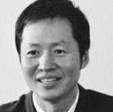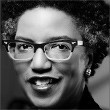Management in Korea is a regular column written by the members of Egon Zehnder Seoul touching on various aspects of Korean enterprises and business leaders and offering management tips. -- Ed.
For decades, corporate boards around the world could best be described as “seen but not heard.”
While directors were supposed to oversee the CEO and the management team on behalf of shareholders, since the CEO effectively hand-picked them, most boards were little more than a rubber stamp.
This arrangement worked well for much of the second half of the twentieth century, when the expanding global economy provided seemingly endless opportunity for large corporations.
Boards in the West, however, are in the middle of a significant transformation that we in Korea would do well to study closely. During the first decade of this century, a combination of pressure from investors for better performance and greater scrutiny in the aftermath of various economic crises changed the role of the board.
 |
Eugene Kim |
Boards became true oversight bodies; assessing risk, questioning management assumptions and managing the leadership pipeline.
Today, with large-scale technological disruptions unleashing new competitors and new business models, they are more important than ever before.
In this environment, even capable oversight is not enough. Boards must be active partners with management in the quest to be more innovative, to access new ideas and resources, and to help chart a path through continual uncertainty.
Linda A. Hill, a professor at Harvard Business School, and George Davis, former Global Leader of the CEO and Board Practice at Egon Zehnder, spoke with more than two dozen directors about the board’s updated remit and published their findings in “The Board’s New Innovation Imperative,” in the November-December 2017 issue of Harvard Business Review.
 |
Linda A. Hill |
They tell a story of both directors and management working to adopt new competencies and new behaviors. Routine PowerPoint presentations at board meetings followed by perfunctory questions are being replaced by spirited discussion and collaboration to chart new paths.
“The model has changed,” explained one forward-thinking chief executive. “We now bring the board ideas that are not fully baked and say, ‘Help us with this.’” Boards are responding by electing directors beyond a close-knit circle of corporate leaders to build boards with a broader range of perspectives and experiences.
Consider how far this is from the typical chaebol, in which the board still reflexively echoes the will of the owning family and chaebol leadership is an exercise in dynastic succession not unlike what is found to our north.
While there is a growing sentiment against traditional chaebol governance practices, the overwhelming view, given Korea’s vibrant economy, is not to make any major changes. Chaebol leaders simply haven’t had the motivation to create boards that will challenge them and provide an independent perspective.
 |
George Davis |
But having closely observed Korea’s business leadership, we would argue that just because something works doesn’t mean it’s not broken.
Too often, systems that seem fine on the outside are weakening from within. Indeed, chaebols do not have to look very far to see the perils of too much fealty in the boardroom.
Not too long ago, Japan’s global electronics conglomerates provided the model Korea sought to emulate. But Toshiba, Olympus, Hitachi and others not only collapsed but did so dramatically.
Their size and success masked a crippling inability to absorb new ideas and adapt to changing technologies and markets. More engaged boards that pushed back on management strategy and sounded alarms might have prevented the decline of those once-mighty companies.
Lee Jae-yong’s conviction for bribery and embezzlement last August is a wake-up call that the same fate is more than possible for the companies that comprise Korea’s economic backbone.
The fact is that chaebols are so powerful and politically entrenched that they will only change when they -- which is to say, their owners -- decide to.
So, a challenge: Do you truly believe that you will be able to keep up with change that is coming not just out of Silicon Valley but Shanghai, Berlin, Tel Aviv and other innovation hubs around the world by keeping things as they are? Do you really think that a table of “yes men” are the best advisors you can have in such vibrant and unpredictable times? If so, I wish you the best of luck. But if not, rethinking the composition of your board and what you expect from them is the best place to start laying the groundwork for a more secure and prosperous future.
By Eugene Kim, Linda A. Hill and George Davis
Eugene Kim is the managing partner of advisory firm Egon Zehnder Seoul.
Linda A. Hill is the Wallace Brett Donham Professor of Business Administration at Harvard Business School.
George Davis was formerly the Global CEO & Board Practice Leader at Egon Zehnder and is currently the executive vice president of MacAndrews & Forbes.










